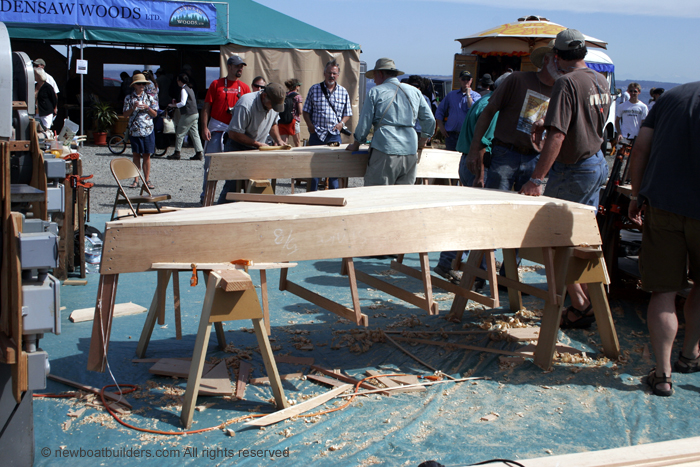 Everything Boat Building
Everything Boat BuildingDon't tell me that I can't. Tell me how I can. |
||
| Also on Pinterest Instagram Linkedin Facebook |
|
|
|
|
||
| The entire Electrical Pages, Capacity and Flotation Course, Gasoline Fuel Systems, Engines and Related Systems, and supporting spreadsheets, of this website may be purchased and downloaded. They are in ebook PDF format and the spreadsheets are in excel. Payment is through PAYPAL Go to the store here | ||
| Disclaimer: I am not a spokesman for the US Coast Guard or ABYC. Contact the US Coast Guard or ABYC for official interpretations. See about this site..... | ||
| Updated 11/09/2025 © newboatbuilders.com 2010 All rights reserved. | ||
So you want to start a boatbuilding business?














WELCOME to my website. A portal for persons getting into the boat building/manufacturing business of recreational boats. I try to explain Federal regulations and industry standards in plain english. Regulations are laws that a boat builder/manufacturer must comply with, but often written in legal terms. The general public does not talk in legalese. Industry Standards are voluntary standards, but most boat builders follow them for safety and liability reasons. I have tried to cut through the fog and make it understandable. None of the information or photos on this site has been generated by A.I. It is all the result of years of education and experience, by me and others in the boatbuilding industry. The photographs were taken by me, unless I credit them to another photographer. The U.S. Coast Guard enforces the Federal Regulations for building recreational boats. They cover Hull Identification Numbers, Manufacturer Identification Codes, Safety Labels, how many people the boat can carry (persons capacity), how heavy a load is safe (maximu weight capacity), built-in flotation, outboard horsepower, electrical systems and ventilation of fuel/engine compartments. There are more. There is a Chart of these regulations here; chart of the regulations. This is also a useful tool for boat owners. Many boat owners want to know what horsepower outboard they can put on their boat. They want to rewire the electrical system. (see "14 Steps to Wiring Your Boat".) Some want to build their own boat. This is a useful guide to that. "Ike's List" provides links to just about everything boat building, including a separate page for electrical links. Thi site works with all devices, PCs, Tablets, and mobile devices. If you have any issues or comments Contact Me Here. See about this site..... |
| I have a page for Guest articles: Since I have had no guest articles for a while, I have been re-publishing articles I wrote for Substack several years ago. The current one is about; Painting Aluminum Boats and Tanks. |
|
This space reserved for important news or announcements. From ABYC: Don’t miss Risk Mitigation Series 10: "Be Informed and Prepared: Emerging Technologies and Inspections" on May 13, 2025, 1:00–2:30 pm (ET). Tune in to learn more about what to expect from US Coast Guard factory visits, evolving technical guidance on advanced driver-assistance systems (ADAS), and more! Full agenda and speaker details to be released soon. |
|
This Web site may contain copyrighted material the use of which has not always been specifically authorized by the copyright owner. I am making such material available in my efforts to advance understanding of educational, economic, and scientific issues, etc. I believe this constitutes a "fair use" of any such copyrighted material as provided for in section 107 of the US Copyright Law. In accordance with Title 17 U.S.C. Section 107, the material on this Web site is distributed without profit to those who have expressed a prior interest in receiving the included information for nonprofit educational purposes. For more information see: www.law.cornell.edu/uscode/17/107.shtml. If you wish to use copyrighted material from this Web site for purposes of your own that go beyond "fair use", you must obtain permission from the copyright owner. |


